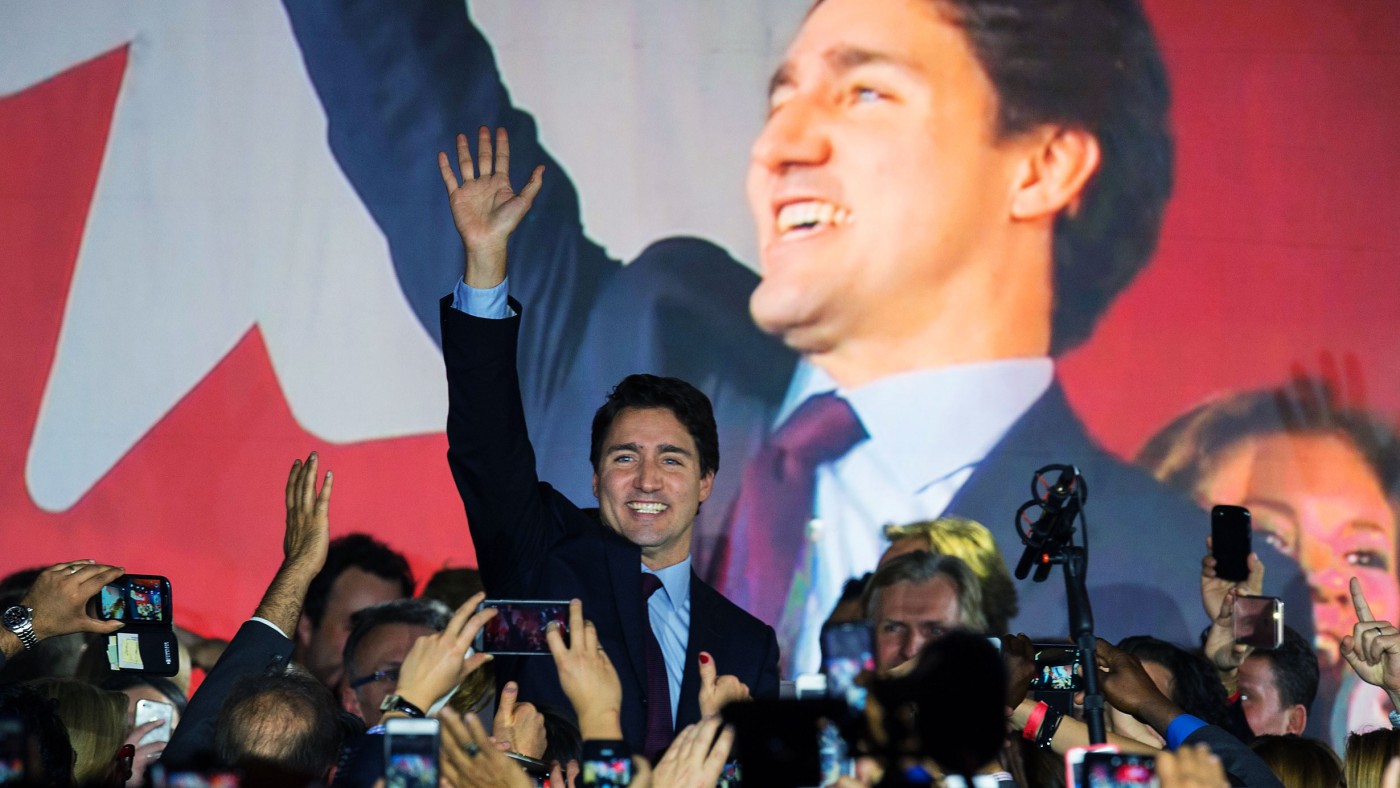1. How the Liberals surged to a majority – Globe and Mail
The Globe and Mail break down the election results by region, covering Quebec, Ontario, the Prairies and British Columbia. The Liberals made particularly large gains in Atlantic Canada.
The Liberals scored big in Atlantic Canada – winning or leading in all 32 ridings on Monday evening – after Justin Trudeau’s party established a major lead in the polls there throughout the campaign.
Mr. Trudeau captured public support as the candidate of change in Atlantic Canada, which has traditionally supported New Democrats in only a few ridings. Mr. Trudeau’s commitment to run small deficits to provide stimulus offered a sharp contrast to both Conservatives and NDP in a region of slow-growth where voters look for government to help generate investment and employment. The Conservatives made cuts to employment insurance that were widely condemned in a region with high joblessness. High-profile New Democrats lost close races, sunk under the Liberal wave.
2. Where Canada’s Harper Hit Hurdles – Wall Street Journal
After turning Canada’s Conservative Party into a national political force, Prime Minister Stephen Harper, whose party was ousted Monday, failed to make lasting inroads with middle-of-the-road voters in the country’s central and eastern regions.
But Harper does leave a legacy for Canadian conservatives:
Despite Monday’s loss, Mr. Harper has positioned the right in Canada to attain electoral success in the future. His move to bring together two right-of-center parties in 2003 succeeded in consolidating the conservative vote under one roof, allowing them to work in tandem rather than at political cross-purposes.
3. What will the new government do? – Barrie McKenna
The centrepiece of Liberal Leader Justin Trudeau’s economic plan is to boost infrastructure spending by up to $5-billion a year by running budget deficits over the next three years. A Liberal government would borrow more money to pay for such things as roads, bridges, seniors’ homes and flood control.
The most significant change under a Liberal government is likely to be in tax policy. The party platform calls for raising roughly $3-billion a year by raising the federal tax rate on income over $200,000 to 33 per cent from 29 per cent. That means the wealthiest Canadians will now face a combined federal and provincial tax rate of more than 50 per cent.
4. Kelly McParland: Trudeau achieves a comeback to rival Pierre – The National Post
Justin Trudeau’s stunning victory Monday arguably equals his father’s performance 35 years ago. In taking his party from third place to first in just over 11 weeks, leading it from its worst defeat ever in 2011 to a majority last night, he overcame low expectations, limited political experience and his own uneven performance in opposition. And he did so against Stephen Harper, a much tougher and more formidable opponent than his father faced in Joe Clark, running a far more sophisticated campaign machine run by a small army of skilled professionals.
5. 7 things Justin Trudeau believes in – BBC
On foreign affairs, Trudeau wants to end Canada’s air campaign against IS, bolster Canada’s relationship with the US, smooth relations with Iran and welcome more Syrian refugees. He has also promised decisive action on climate change, investigate the recent deaths of Aboriginal women and try to legalise marijuana.


